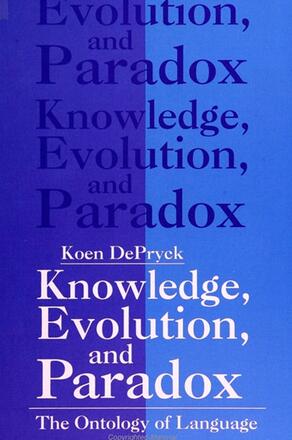
Knowledge, Evolution and Paradox
The Ontology of Language
Alternative formats available from:
Koen DePryck is President of the Institute of Knowledge Management in Dilbeek, Belgium.
Reviews
"It is already clear that postmodernism is an unsatisfactory view of the world: the skepticism, antifoundationalism, and distrust of any form of narrative or argument that has characterized this last phase of modernism cannot long resist its own corrosive critique. What view of the world will succeed postmodernism? To answer this question, it is necessary to take up several challenges abandoned along the way as metaphysical, insoluble in terms of the contemporary science, or politically formidable: the problem of how different disciplinary worlds can belong to the same world, the problem of the apparent incommensurability of different language-games, the problem of the nature of time, the problem of how mind and consciousness can be embodied in the physical brain, the problem of origins and evolution, and above all, the problem of time.
"Koen DePryck's book, in a remarkable synthesis, lays the groundwork for an answer. Using new concepts derived from the study of iterative, chaotic, and probabilistic processes in nature and in the computer, he develops a way of looking at both the sciences and the humanities that fully meets the concerns of the mainstream of modern philosophy, while opening up whole new areas of research. This book joins a handful of important and daring new works that have recently broken with the current conventional wisdom of the humanities, and that chart the altered shape of the academy as it will exist in the twenty-first century. " — Frederick Turner, Founders Professor of Arts and Humanities, University of Texas at Dallas